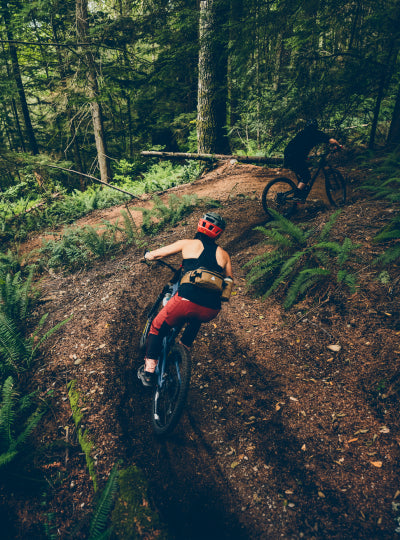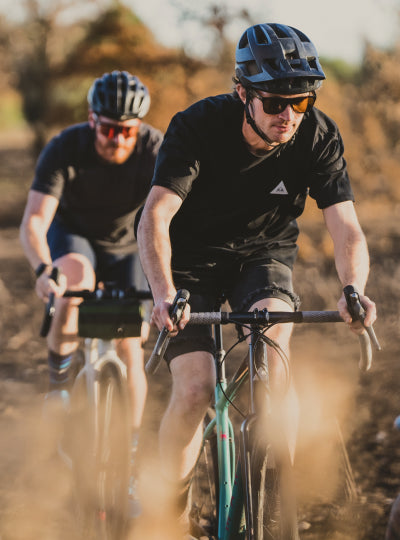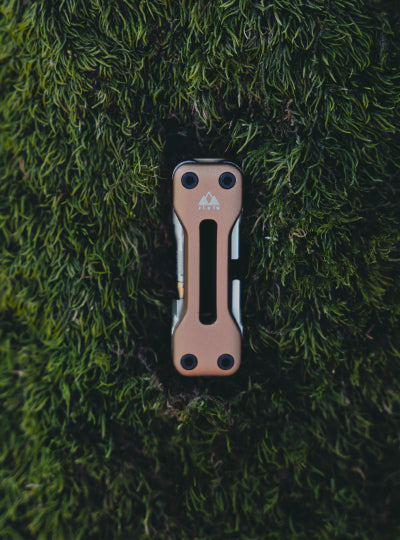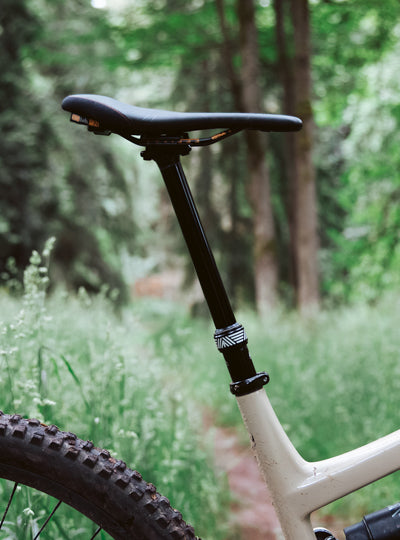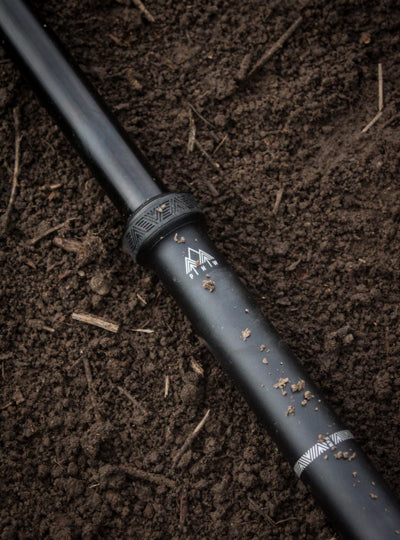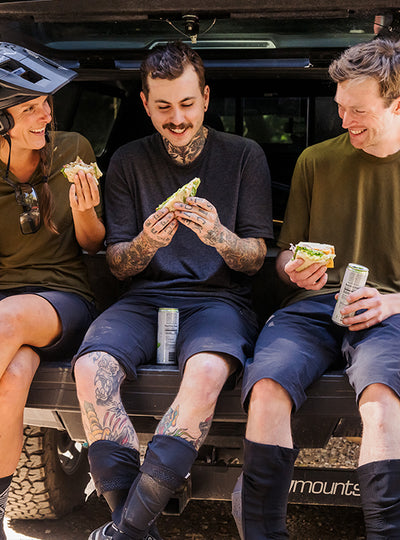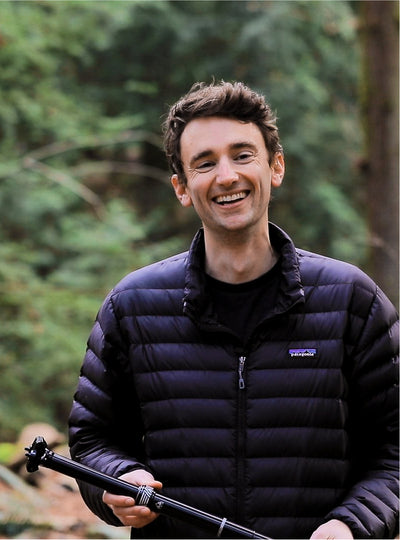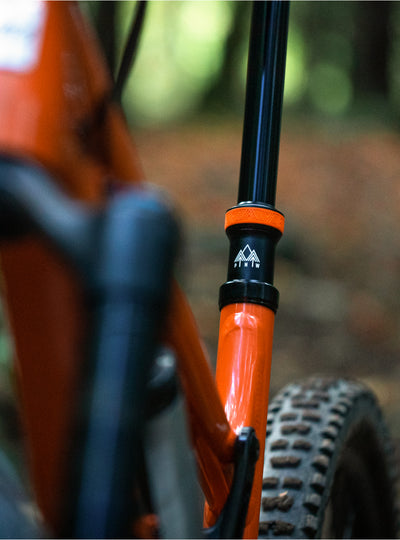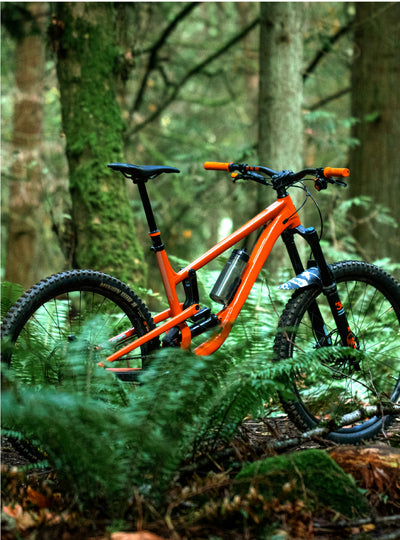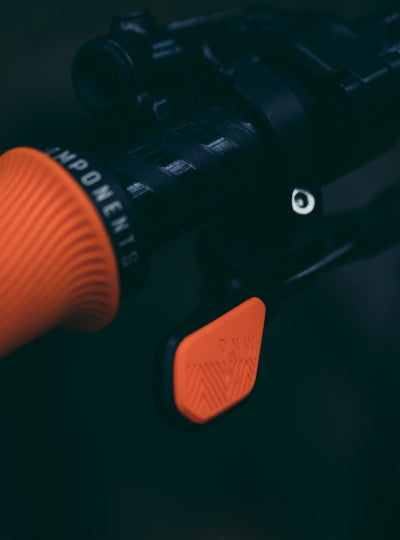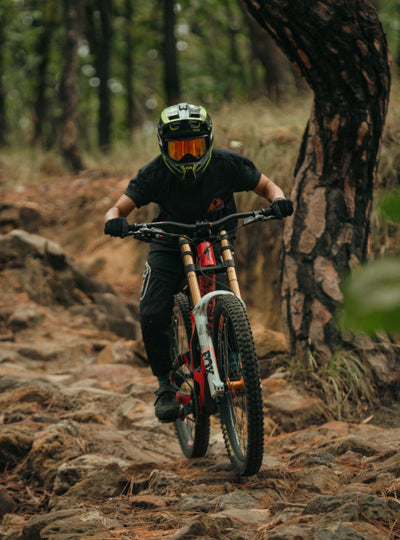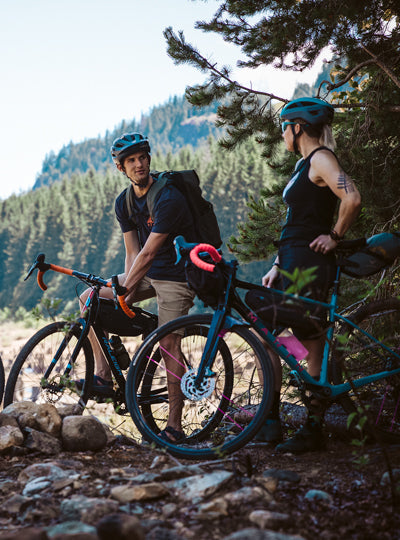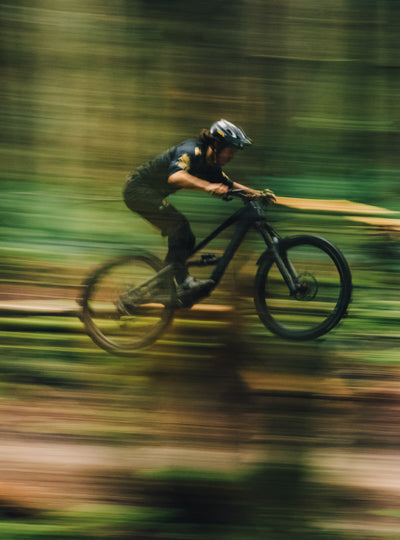The Downtime Podcast, created and hosted by Chris Hall, is one of the most popular podcasts in the mountain bike industry, and for good reason. Downtime provides listeners with behind the scenes access to the elite levels of MTB racing and industry decisions. With guests ranging from multi-World Champion Rachel Atherton and internet sensation Remi Métailler, to team members of clothing and protective brands, the Downtime Podcast has a little bit of everything for everyone who is looking to learn more about the industry that they love.
PNW Components Co-Founder and Owner Aaron Kerson was one of the Downtime Podcast's most recent guests and joined Chris to talk about his journey through the MTB industry and what led to the creation of PNW. Listen to Aaron's journey into entrepreneurship below and then read the transcript of some of our favorite talking points from the episode.
Becoming a MTB Entrepreneur - Aaron Kerson of PNW Components
Below are some of our favorite questions and answers from Aaron's chat with Chris:
21:26 - What kind of stuff were you doing [at Amazon]? Optimizing search stuff? (In reference to Aaron getting a job at Amazon and how it lead to the creation of PNW Components)
I don't want you to fall asleep, it's not too exciting. I was doing product management, but there it's a very different style of product management. You're not working with manufacturers obviously, it's software. It's a lot of very deep, deep dives into data. One particular thing I was working on was how to help people find clothing faster because I'm such a fashion icon. Not a great fit. But it was interesting. I got to learn how customers are searching for things, how things should be organized in search and then how items are ranked in various search ranking algorithms. Like Amazon's search ranking algorithm, how Google's works at a high level. And the light started to go off like, "Woah, I'm learning a lot about how to properly set up an e-commerce brand and I really miss the bike industry. Why don't I give some of my former suppliers and manufacturers a call and see if we can get something going."
So that's how PNW sparked. It was ... a distraction from a somewhat mundane job, and it allowed me to get back into the bike industry. Those things came together and Emily and I were like, "You know what? I think we could do something really unique here and help riders get on better quality stuff at lower prices." It was pretty organic how it started, it wasn't like "I'm gonna start a company, let's make a business plan." It was like, "I think we can do something cool here and really help people out."
26:15 - How did you start then? So you had this idea, you're like, "Well I'm learning a lot here, and I want to get back into the bike industry, I've got plenty of contacts." What was your first kind of idea, or concept, or product?
It was dropper posts. I guess we should rewind. I was [working] at Specialized, I see that droppers are becoming more popular. Keep in mind this is like 2011, 2012, droppers were not as popular as they are now. And I'm thinking I'd love to bring these downstream onto some more affordable bikes, but the Command Post at the time was a very premium product and there was just no way I could get the numbers to work. So I worked with another engineer at Specialized and basically pitched that we needed to come up with a lower cost product. So we worked with a few vendors over in Taiwan and got the project going. So the nice thing is I had this personal relationship with our factory starting then. We obviously did lots of business together and I did business again with them at Marin, so I'd been working with them since 2011 developing this kind of stuff.
Emily and I were living in a hotel that we were able to get through a family friend because we didn't really have our act together when we got to Seattle and I remember I contact the family and was like, "Hey, this is Aaron, do you remember me." And he said yes, and I said, "Well I'm thinking of starting a company and I'd love to develop a dropper post with you." And he said, "We do OEM. I'm not interested in doing after-market, we're not set up for it." And I was really somewhat desperate and persistent and I stayed on him for a few months. I was like, "Dude, come on, we gotta do this. I think that we can really do some interesting things and we have a really unique perspective as a brand. And no one is really looking at this type of the market, kind of the mid-level range and doing a really good job there, and I really think we can do something." And so he finally he came around and was like, "Alright, let's do it."
We got to work, we were able to get some product in hand within three months after he finally agreed. And then it was off to the races. We got them up on Amazon, got our website going, started a little Instagram account, and I remember the first sale was February 12th, 2016.
32:30 - So the mission of PNW, has that always been to try and bring better value, or lower cost, depending on how you look at it, products to the market?
Exactly, yeah. I worked at what I would say is one of the more elite level brands. Specialized is all about high performance, especially then, they're now becoming a little bit more relaxed and about having fun. The time I was there it was all about the Tour de France, it was all about World Cup Cross Country, it was all about World Cup Downhill. So being in that environment you pick up how to do that well, but from my perspective it's alienating. Not all of us have any interesting in ever becoming a world cup level athlete, but we still want to have fun and we still want high quality products. My favorite bikes to develop were kind of the lower cost products because those are the most challenging, you're the most challenged with margin and you don't have much to work with, but you want to do something cool that someone feels proud of at $400-$900. That's a lot of money for a non-enthusiast rider but those bikes are typically overlooked.
I loved that challenge, and taking what I learned from studying those customers deeply and truly having empathy for wanting more people on their bikes and that fueled both Emily and my vision for thinking, "I think we can create a really cool brand that has high quality products, because I'm using all the same suppliers I was using at these OEM's, but bringing them at much lower cost because we're not so focused on sponsoring a $20million Tour de France team because all of those costs have to be recouped through higher prices on product."
Our vision was like, "Well if we leverage social media, which is where everyone is at everyday, if we can gain some traction there and bring some brand awareness, and then follow up with incredible customer service that people start telling their friends about, I think that's something interesting." You're not going to see us sponsoring World Cup race teams or doing full print ads in magazines. We try to be resourceful with our ad dollars and getting the message out to where people are telling our friends about us. That for me is the biggest honor and also very effective from a marketing stand point. That's kind of our vision and the way we've been marching forward.
35:11 - Talk us through the customer service thing and how you've approached that because there's a lot of companies that do it badly.
So it was fueled by being pissed off, I'll be totally honest. I'd been treated so poorly so many times by so many brands, I was like, "Oh come on, you can do better than this, you just don't want to." My first job out of college at the windmill company, I was the service manager so I was getting lit up all day long by the customers because the product we put out was very early and it did have issues. I was kind of the brunt for all of that so I'm very hyper sensitive to ensuring customers are taken care of. For whatever reason I take it very personally and I want to make sure people are feeling good about their experience with the company.
We offer a three year warranty, which other brands are doing now, but we're very lenient. If someone's not happy with something, I'm going to way, way, way further than any other company than I've come across at least to make sure they're taken care of. Just yesterday we had someone who brought a product while they were on vacation in Las Vegas but they live in Israel. We're not set up to service anyone in Israel, but he bought too long of a post and now he wants to exchange it. Typically I think most brands would be like, "Hey sorry man, it's not going to happen, we don't service Israel." But we're going to do it. We're going to pay for the shipping and just deal with it. Sure, that eats into our margin, but at the end of the day he's very likely to tell his friends about his experience with us.
Now that we have other folks working, we have TJ who's now our sales and service manager, he has the empathy that we demand. We don't want someone just sitting there as a place holder answering emails, we want someone who really goes above and beyond to make sure people are taken care of. We are extremely lucky to have him because that's exactly what he does. If you look through our reviews on our website, more often than not people mention, "Hey so-and-so was great to work with. Aaron was great. TJ was great. Oh, and the product works well." So that for me is almost more important than the product itself. We happen to have very high quality product. You've been on some of our stuff and it works fantastic, but what sets us apart is that we are here to take care of you and we're not going to leave you hanging. I think that's unique. It shouldn't be unique, but it is unique.
46:25 - You guys have quite an environmental focus as well, haven't you? I've seen you don't send out instruction manuals, they're all digital, and the packaging is all recyclable, is that right?
Yeah man, plastic sucks. We're really bummed out on that. Here in Seattle, the logging industry is a huge industry. A lot of our riding spots are actually on logging land, and so every once in a while you'll show up and your trails are gone because all the trees have been cut out. What we came to find out is a particular spot here locally, Tokul, most of the wood is going towards toilet paper and printer paper. Seeing the impact first hand, you're like, "Holy sh*t, this is crazy that we're wasting trees just so someone can have an owner's manual once and then they throw it away." So we digitized it, but we still include a small, business card sized insert that says you can find your manuals online, so we are still using some paper. But the nice thing is it's way less and also you can recycle it. What we're moving towards is having no plastic in our packaging, for obvious reasons. There's a lot of research coming out of how much plastic is floating around in our air and it causes serious issues of cancer and a lot of it ends up in the ocean which is no good.
So we're trying to reduce our impact there. We aren't quite there yet with our droppers, we still use a little plastic sleeve to hold the cables together, but we're working on a new envelope that will hold everything together and then we'll have no plastic. Our Loam Lever is pretty damn close. Again, it has that same plastic sleeve around the cable, but everything else is 100% recyclable. We're not trying to push that one too hard because we just want to do it because it's the right thing to do and not try to make it into a marketing thing. I guess we have a unique perspective because we do see the impact of our consumerism on our local environment here.
For more on the near future of PNW Components, Aaron's advice for prospective entrepreneurs, and his thoughts on the direction of the MTB industry, be sure to give the whole podcast a listen. Check out more episodes of the Downtime Podcast at http://www.downtimepodcast.com/
